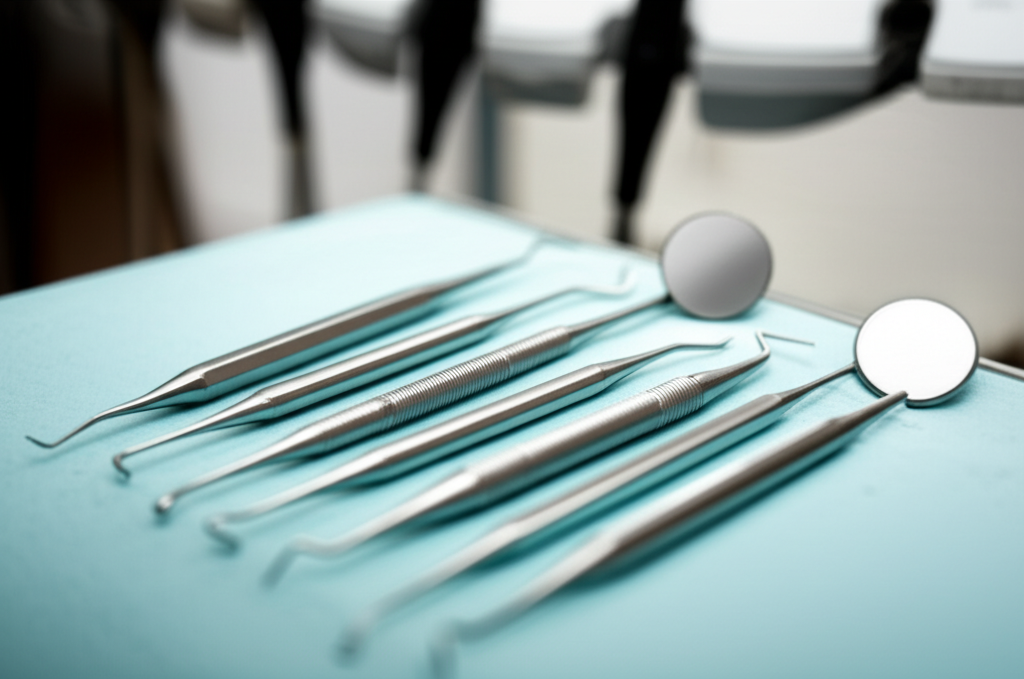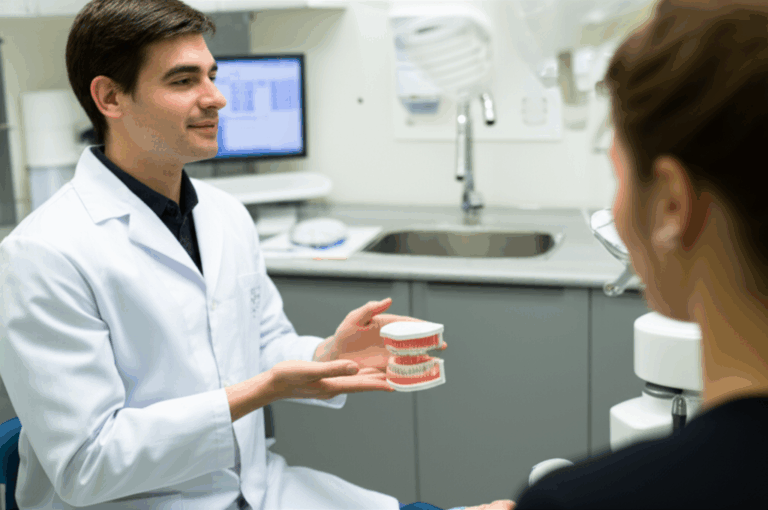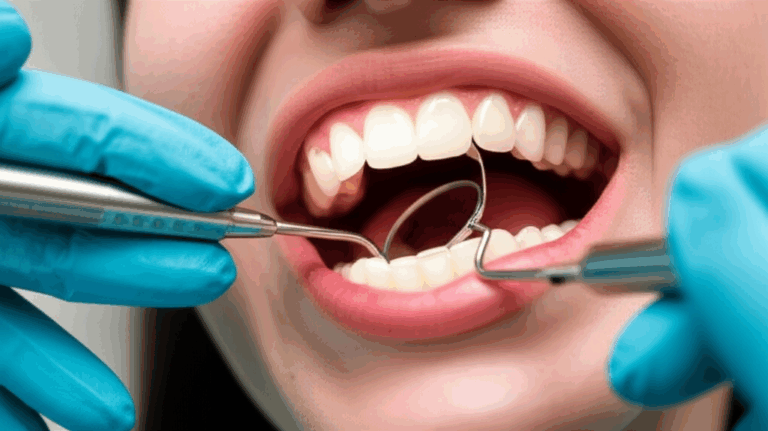
Why Is The Dentist So Expensive? Understanding The Real Costs & Finding Affordable Care
Do you remember the last time you left the dentist’s office? Maybe you had a regular cleaning and didn’t pay anything because your insurance covered it. But maybe you needed a crown, root canal, or implant—and when you saw the price, your mouth dropped open more than it did in the dentist’s chair.
If you’re wondering, “Why is the dentist so expensive?” you’re not alone. This is something millions of people think about every day. Maybe you feel annoyed, confused, or even a little angry. You might ask if dental care really has to cost this much, or if it’s just too much.
Let’s get into the details together. I’ll show you where your money goes, what really makes dental care cost so much, and, most importantly, how to keep your dental costs as low as you can. The truth? There are real reasons for those high prices—but with some information, you can make smart choices for your teeth and your wallet.
In This Article
- The Sticker Shock of Dental Care: Is It Normal?
- The Real Reasons Dentists Are Expensive
- Breaking Down the Cost: What’s in Your Dental Bill?
- How to Make Dental Care More Affordable
- Are You a Good Candidate for Low-Cost and Preventative Options?
- Your Healthy Takeaway: Key Points & Next Steps
The Sticker Shock of Dental Care: Is It Normal?
Let’s start with the main thing:
It’s totally normal to be surprised by your dental bill. Lots of people feel this way.
In fact, surveys show that more than a third of adults in the U.S. have put off or skipped dental care because it costs too much. Even people with dental insurance can be surprised by what they have to pay for crowns, implants, or braces. You might have wondered:
- Why doesn’t dental care get covered the same as medical care?
- Are these prices normal, or is my dentist charging more than they should?
- Is there a way to get the care I need without emptying my bank account?
If you’ve thought about these things, you’re not alone—you’re already starting to take care of both your health and your money.
Let’s see what really goes into those prices.
The Real Reasons Dentists Are Expensive
Let’s think about food. You can buy a loaf of bread for a couple dollars, but a fancy decorated birthday cake might cost thirty dollars or more. Dental care is similar: you’re not just paying for the stuff they use, but for skill, care, and the whole team working to help you. Here’s what really matters:
High Costs to Run a Dental Office
Dentistry needs a lot of stuff and lots of people. Here’s where your dentist’s fees really go:
- Special Equipment & Technology:
Modern dental tools are not cheap. X-ray machines, cleaning gear, and high-tech stuff like 3D printers cost a lot—some machines cost as much as a car.
- Rent & Bills:
Dental offices are usually in easy-to-reach places, like shopping centers or medical buildings, and rent there costs a lot. Add in electricity (to power those machines), water, and safe garbage service—it adds up fast.
- Staff Wages:
Dentists have helpers! Dental hygienists, assistants, and front desk staff all help make your visit smoother. Their pay is a big part of what you get charged.
- Materials & Lab Fees:
Something like a crown isn’t something you can buy at a normal store. Dental labs—like a crown and bridge lab—make special pieces just for you. That price is added to your bill.
- Insurance for Lawsuits:
Dentists have to pay for special insurance in case something goes wrong. This “malpractice” insurance can cost thousands every year.
- Rules & Cleanliness:
Offices have to follow tough rules to keep things clean. From washing all the tools after every patient to following health laws, it costs time and money.
It’s a bit like eating at a nice restaurant: you’re paying for the food, the place, the cook, and the team. For dentists, the costs for tools, training, and safety are even higher.
Schooling and Training
Dentists aren’t just tooth-fixers; they’ve gone to school for a long time:
- Lots of Years in School:
A regular dentist needs at least eight years of school—and even more if they want to specialize. Many graduate with nearly $300,000 debt.
- Never Stop Learning:
New ways of doing things show up every year. Dentists keep learning so they can use the best and safest ways to treat you.
This all takes a lot of time and money—which goes into the prices you pay.
Insurance Doesn’t Help Like Medical Care
Dental insurance isn’t like regular health insurance. In places like the U.S.:
- Dental Insurance Is Separate:
Most health insurance doesn’t pay the dentist. Only about 60% of Americans have dental insurance at all—and it usually only pays up to $1,000 or $2,000 a year.
- Limits Are Low:
Insurance may pay for checkups and cleanings, but if you need a crown, implant, or braces, you reach your limit fast and then pay the rest yourself.
- Mostly Covers Prevention:
Insurance plans mainly pay for cleanings and small things, but not for big repairs or anything that’s just for looks.
- Many Don’t Have Any Coverage:
If your job doesn’t offer it, you might pay all by yourself. That means some people skip visits and end up paying more later.
Dental Work Is Exact and Tricky
Every mouth is different:
- Small Spaces:
Imagine fixing something tiny, inside a small space, with almost no light—that’s what it’s like working in a mouth.
- Takes Time:
Things like fillings, root canals, or implants need lots of attention and sometimes take hours.
- Numbing & Sedation:
Making you feel comfortable and numb is its own job. If you want stronger medicine or sedation, the cost goes up.
Prevention vs. Big Repairs
Here’s an open secret:
Stopping tooth problems before they start is way cheaper than fixing them later.
- A regular cleaning might cost $75–$200.
- Skip it for a while, and you might pay $1,000–$6,000 for a root canal or an implant.
Teeth problems almost never get better on their own. Catching them early means you keep both your teeth and your money.
Dentists Are Small Businesses Too
Dental offices have to pay staff, their bills, and hopefully make a little profit. Some of what you pay even goes to comfy chairs, TV, or ways to make you feel less nervous. These extras aren’t needed to fix your teeth, but they make your trip better.
Breaking Down the Cost: What’s in Your Dental Bill?
So how do these things show up on your bill? Here’s a basic breakdown, with average U.S. prices and what can make things more or less expensive.
| Procedure/Category | Average Cost (USD) | Things That Change the Price |
|---|---|---|
| Dental Exam | $50-$150 | Where you live, dentist’s fees, how much is checked |
| Cleaning | $75-$200 | Where you live, how deep the cleaning goes, dentist’s fees |
| Full Mouth X-rays | $100-$250 | What kind of X-rays, extra pictures |
| Filling (Amalgam) | $50-$200 | How big it is, which tooth, how many parts |
| Filling (Composite) | $90-$450 | Nicer looking, so more expensive than regular ones |
| Simple Extraction | $75-$300 | Which tooth, how tricky, dentist’s skill |
| Impacted Wisdom Tooth | $200-$750 per tooth | Hard to reach teeth, strong medicine, dentist’s experience |
| Root Canal (Front Tooth) | $700-$1,500 | Which tooth, how tough, specialist or regular dentist |
| Root Canal (Molar) | $900–$2,000+ | Back teeth are harder and take longer |
| Crown | $800–$2,500 | What it’s made from (like ceramic, gold), lab fees, special custom work |
| Single Implant | $3,000–$6,000+ | Surgery steps, bone added, specialist’s fees |
| Braces (Traditional) | $3,000–$7,000 | How tricky your case is, how long you need them |
| Invisalign | $3,500–$8,000 | Custom trays, how long treatment lasts |
A real-life example:
If you crack a tooth and need a crown, maybe the price is $1,200. That pays for:
- Getting your tooth ready and in the right shape
- A pretend (temporary) crown for now
- Impressions sent to a dental ceramics lab
- Making your special crown
- Putting it on your tooth and making sure it fits
So, the price isn’t just about the material; it’s like custom-making something just for you instead of buying something ready-made.
How to Make Dental Care More Affordable
Now you know why dentists cost so much—so what can you do?
Focus on Prevention
You might have heard it before, but it matters:
It’s much cheaper to care for your teeth than to fix them later.
- Don’t skip cleanings and checkups.
Most tooth problems—cavities, gum disease, big infections—are much easier and cheaper to stop early. That twice-a-year cleaning might seem useless, but it can keep you from paying a lot more later.
- Brush, floss, rinse.
Taking care of your teeth at home helps you avoid big repairs. Like getting your oil changed in your car—skip it, and the problems get expensive.
Make the Most of Insurance
- Know your plan.
Find out what your insurance pays for, your yearly cap, and what you’ll have to pay yourself.
- Plan around your insurance year.
If you need a lot of work, see if you can split it between years and let insurance pay as much as it can.
- Look at dental savings plans.
Some plans let you pay a yearly fee for discounted prices—no deductibles and no yearly max.
Try Other Cheaper Care Options
- Dental Schools:
Dental schools let students, with a teacher nearby, do your work for much less money. You may have to be flexible with time, but it’s safe and costs less.
- Community and Free Clinics:
Some not-for-profit places or local health groups do dental work for less money or free, especially for kids, older people, or those without much money.
- Shop Around:
Don’t be afraid to ask more than one dentist about the price for big jobs. Costs can change depending on where you live.
- Ask About Payment Plans:
Many dental offices let you pay over time, making big bills easier to handle.
- Dental Care in Other Countries:
Some people travel to another country for dental work. Just make sure you check reviews and quality—sometimes it’s cheaper, but if things go wrong, it can end up costing more in the end.
Know Your Choices in Materials
The kind of material used for your new crown or denture can change the price. Ask your dentist:
- Is there a cheaper but still good option?
- What’s better about porcelain, zirconia, or gold?
- Where is your crown being made—a local lab or a china dental lab?
Knowing your options means you get to pick what’s best for your money and your look.
Are You a Good Fit for Cheaper and Preventative Care?
Not all choices work for everyone, but you may be surprised how many are open if you ask:
- Most People Do Well With Basic Care:
Unless you have lots of dental or health problems, brushing, flossing, and regular cleanings are a big help.
- Dental Schools and Clinics:
If you’re okay with students working (always supervised!), these can be good for regular checkups and many simple fixes.
- People Who Need Implants or Braces:
If you need big work—like implants or lots of braces—look at all your options. Check what lab your dentist uses, if there are cheaper choices, and what’s guaranteed.
- Kids and Older Adults:
You may be able to get government help, depending on your age and where you live. Local health offices may also have information about free or cheap clinics.
Always ask your dentist or their helper if there are any discounts, payment plans, or programs that could help you.
Your Healthy Takeaway: Key Points & Next Steps
Here’s what’s important:
Taking care of your teeth is an investment in you. Yes, good dental care can cost a lot, but those costs come from real things: school, tools, staff, safety, and know-how.
Remember:
- Most people are surprised by the bill—you’re not the only one.
- Prices show the cost of running a dental practice, education, insurance, skill, and running a business.
- Taking care of your teeth early is always less expensive in the long run.
- You can find ways to save money: by using your insurance well, asking about savings plans, exploring community clinics, arranging payment plans, and more.
- It’s okay to ask questions, shop around, and check all your choices.
Next Steps: Take Charge
- Book your cleaning—it pays off!
- If you’re facing a big bill, ask the office to make each fee clear and see what other choices you have.
- Check local dental schools or clinics if the regular price is too much.
- Look over your insurance, or think about a dental savings plan.
And remember—your teeth aren’t just about money or looks. Good teeth help with confidence, health, and enjoying life.
Looking after your mouth pays off for years—keeping you happy, eating well, and pain-free.
Reviewed by a real practicing dentist. All advice is general—ask your own dentist for tips about your own teeth. For more clear dental tips, see our full dental practical guide.








